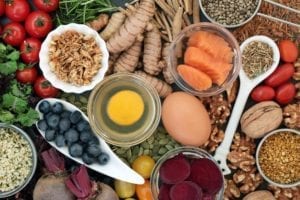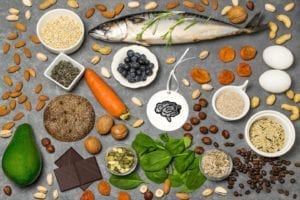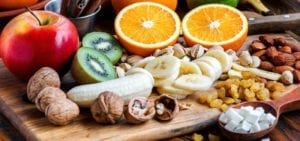Healthy Living
NOOTROPIC FOODS TO BOOST THE MEMORY DURING EXAMINATION

While we as parents worry about the nutrition content of the food of our kids, we rarely think about how food can also affect our child’s brains.
The feeding of children, the right way, has to be well monitored by their parents for their proper physical and mental growth of children. Healthy eating can stabilize children’s energy, sharpen their minds, and even out their moods.

Children who don’t get proper nutrition during their first three years may be losing ground in intelligence to their better-nourished peers and hence children should be encouraged to eat healthy foods from an early age and to avoid foods that are high in fat and sugar, as far as possible.
Nutrition has been called the single greatest environmental influence for children, and it remains essential during the initial years of life and during examination for their memory.

WHAT ARE NOOTROPIC FOODS?
Nootropics are brain booster they are drugs or supplements which help to improve cognitive function, memory, creativity or motivation particularly executive functions that are beneficial for the human brain.
The foods which are rich in nootropics are:

Eggs: Are rich in choline, which helps transmit signals across neuronal membranes. The body uses the choline in eggs to produce acetylcholine, which aids the body in achieving deep sleep in retaining new memories.
Spinach: Dark greens leafy vegetables like spinach and kale are the best source of brain-boosting nutrients lutein and zeaxanthin these nutrients help in quicker mental recall and increased capacity for memory.
Turmeric: Turmeric which belongs to ginger family helps stimulates neurogenic cellular creation, and is used in the treatment of depression, Alzheimer’s disease, and strokes.
Blueberries: Contain Anthocyanin, an antioxidant that prevents the brain from aging. Anthocyanin helps improve memory and cognitive function and even helps intra-cellular communication within our brains.
Dark Chocolate: Flavanol-rich cocoa beans actually increase blood flow to the brain and can even trigger the production of new brain cells.
Oily Fish: The long-chain omega 3s in oily fish may improve learning and memory and reduce inflammation in the brain which helps in decreased risk of Alzheimer’s disease, depression, and other mental health conditions.
Red Wine: Nootropic benefits in red wine are in its high levels of resveratrol, an antioxidant compound that targets the free radicals associated with some forms of cancer.
Nuts: Walnuts have a high amount of vitamin E that forms a protective layer around the brain cell membranes and ward off free radicals.
Coffee: Caffeine content in the coffee shows cognitive performance by blocking the activity of adenosine, an inhibitory neurotransmitter in the brain. This neurotransmitter can reduce mental stamina and make one feel drowsy.
Green Tea: Contains catechin and L-theanine which promote relaxation without sedation which favorably promotes brain function.
Water: When we are dehydrated, we are more likely not to be able to think clearly. around two liters of water, a day is recommended but it also depends on body weight, and level of physical activity of a person.
Contributed by – Ms. Pavithra N Raj, Chief Dietician, Columbia Asia Referral Hospital Yeshwanthpur





























